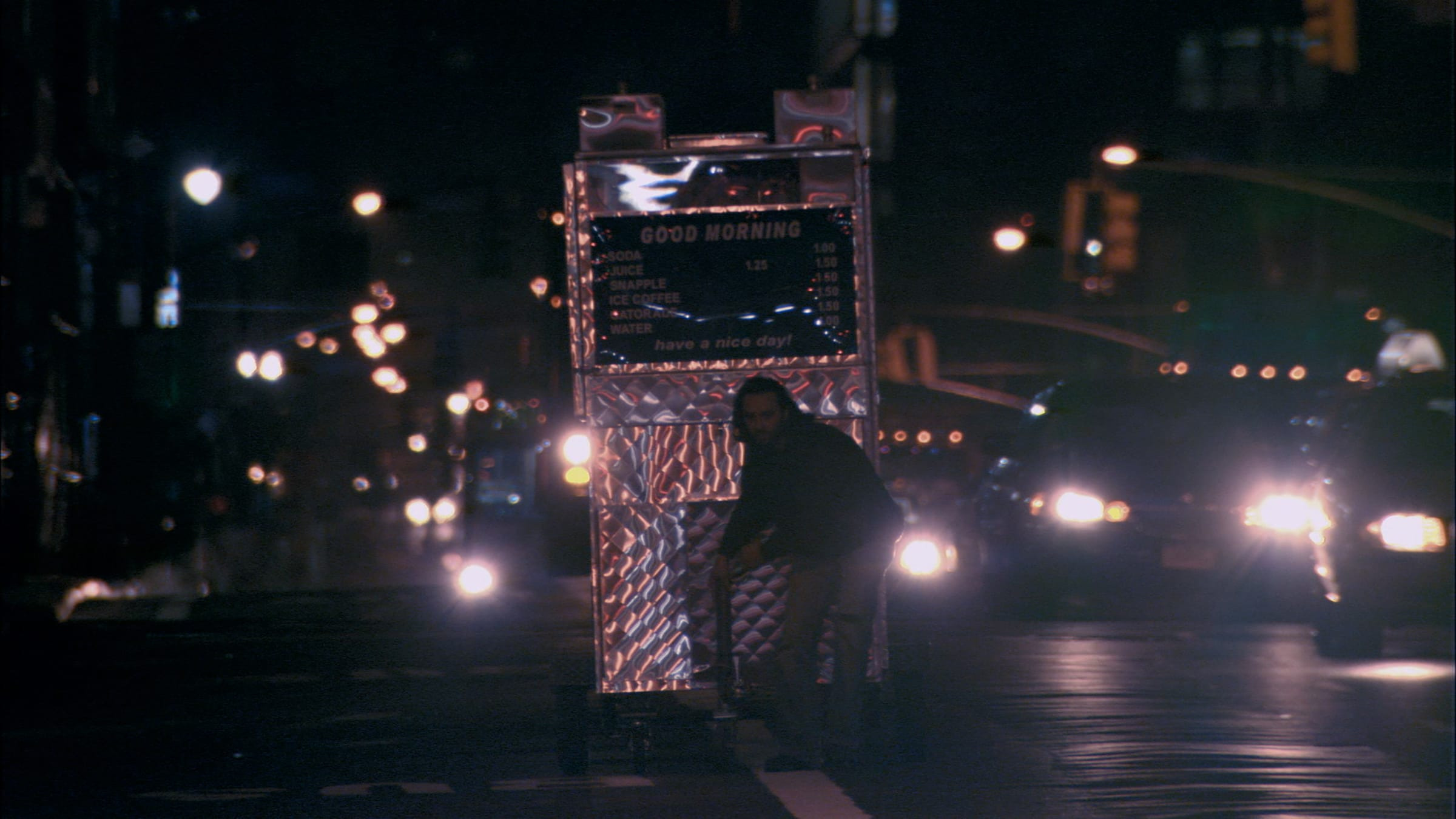Man Push Cart: A Melancholy Pull

He never really pushes that cart, does he? Despite the film’s title, Ahmad (Ahmad Razvi), the mournfully persistent protagonist of Ramin Bahrani’s 2005 debut feature, Man Push Cart, is almost always seen pulling his cart through the nighttime streets of New York City. But Man Pull Cart doesn’t have quite the same Sisyphean ring to it. The Iranian American Bahrani has said that he first began thinking about the project in the wake of 9/11, when the United States’ bombing of Afghanistan prompted the realization that the only Afghans he knew in New York were street vendors. His thoughts then drifted to Albert Camus’s influential 1942 essay “The Myth of Sisyphus,” in which the writer suggests that the ancient Greek legend, about a disgraced king condemned by the gods to push a boulder up a hill for eternity only to have it repeatedly roll back down, could be a metaphor for the futility of the human condition. In addition, Bahrani has cited a verse by the Sufi mystic Rumi as inspiration: “I am the polo stick and you are the ball. Wherever I hit you, you go. But wherever you go I must follow.” And so, Man Push Cart is both highly specific to its big-city setting and universal in its poetic sense of toil and rootlessness. It’s about trying to belong to a place where nobody—and nothing—belongs.
A stickler for research, Bahrani likes to pull us into the worlds of his films through heightened attention to atmosphere and authenticity. For subsequent works, such as 2007’s Chop Shop, the director would often immerse his actors in a milieu for months before starting to shoot. In the case of Man Push Cart, he spent nearly two years talking to pushcart vendors of varying backgrounds. The Pakistani American Razvi, who was working at his family’s sweetshop in Brooklyn when Bahrani met him, had already spent a year working a cart on the streets of New York, making him an ideal choice for the part. Populating his cast with newcomers, nonprofessionals, and occasional people off the street, and shooting with a tiny crew in actual locations, utilizing available light and high-definition video, Bahrani was able to portray the real corners of this working-class world with minimal fuss or inconvenience. Ordinary customers occasionally came to the cart manned by Razvi and ordered week-old doughnuts and prop coffee. The filmmakers themselves were sometimes accused of being terrorists. The events of 9/11 are never mentioned in Man Push Cart, aside from a brief evocation when one of Ahmad’s friends displays a scar he got from being stabbed in an anti-Muslim hate crime (the actor, by the way, really was stabbed in a hate crime, and the scar is real), but the dull, persistent tension in the air throughout the film would have certainly resonated with American audiences in 2005.
The opening scenes show Ahmad picking up supplies and products in a real-life warehouse as he and others roll out their carts in the middle of the night to prepare for the early-morning rush. These drab, dimly lit spaces belie the nature of the product: the doughnuts come in large cardboard boxes taken off dusty shelves from suppliers—they may as well be bolts, or light bulbs, or cheap rubber ducks made in China, just one meaningless part of a big machine. When Ahmad arranges the pastries in his vitrine, there’s nothing appetizing or inviting about them. After watching this movie, the very last thing you’ll want is a New York street doughnut.






